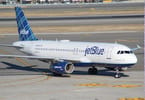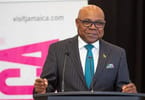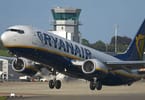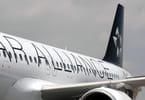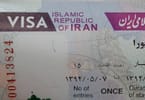HONG KONG – This week’s Hong Kong government ruling on Jetstar Hong Kong most certainly ends its dreams of a future as a local airline, but not to legal wrangles that may arise, nor to the venture’s alternative business life.
Qantas Airways chief executive Alan Joyce said on Friday after its one-third owned investment was shot down following a two-year fight for a licence that the decision sent an unwelcoming message to foreign investors.
“The message from this decision is that Hong Kong appears closed to fresh aviation investment even when it is majority locally owned and controlled,” Joyce said. “At a time when aviation markets across Asia are opening up, Hong Kong is going in the opposite direction. Given the importance of aviation to global commerce, shutting the door to new competition can only serve the vested interests already installed in that market.”
The ruling, which detailed what constitutes a local carrier, may also trigger scrutiny of the foreign ownership of the city’s four incumbent airlines from two airline groups – Dragonair is owned by Cathay Pacific Airways, while both Hong Kong Airlines and Hong Kong Express are subsidiaries of Hainan Airlines parent HNA Group, which is associated with the Hainan government.
“It is basically two foreign-owned airlines objecting to a third one,” corporate governance activist David Webb said.
“The irony about all this is the largest objector Cathay Pacific has two big foreign shareholders – Air China and Swire, they are basically controlled by mainland Chinese and British interest, and Hong Kong Airlines and Hong Kong Express are basically controlled by mainlanders and the Hainan government through Hainan Airlines.”
Cathay Pacific, 45 per cent owned by Swire Pacific and 30 per cent by Air China, had said it had always qualified as a Hong Kong carrier in its 68-year history operating here. Hong Kong Airlines and Hong Kong Express declined to disclose HNA’s exact stake and only said they were compliant too.
According to Hong Kong Airlines’ listing prospectus when it attempted an initial public offering last year, four subsidiary companies of HNA own 83.45 per cent of it. Webb said he expected Jetstar would launch a judicial review, which was the only way to challenge government decisions.
But William Ho, an aviation specialist lawyer with 24 years of experience, said it was “highly unlikely” anyone could reverse the rejection or challenge the existing licences.
“It appears ATLA (the Air Transport Licensing Authority) used the same criteria to determine one’s principal place of business as used in an important US Supreme Court decision in 2010,” Ho said. “I think the government has used the right tests and it is highly unlikely anyone could challenge ATLA on the findings of facts.”
Ho said he thought the decision meant the end of Jetstar Hong Kong as an airline, but he added: “It doesn’t mean the investors need to wind up Jetstar. They can change the nature of business and do something else in aviation.”
Jetstar Hong Kong and its two shareholders, China Eastern and Shun Tak, said they were weighing the next course of action.
WHAT TO TAKE AWAY FROM THIS ARTICLE:
- Ho said he thought the decision meant the end of Jetstar Hong Kong as an airline, but he added.
- This week’s Hong Kong government ruling on Jetstar Hong Kong most certainly ends its dreams of a future as a local airline, but not to legal wrangles that may arise, nor to the venture’s alternative business life.
- Qantas Airways chief executive Alan Joyce said on Friday after its one-third owned investment was shot down following a two-year fight for a licence that the decision sent an unwelcoming message to foreign investors.










